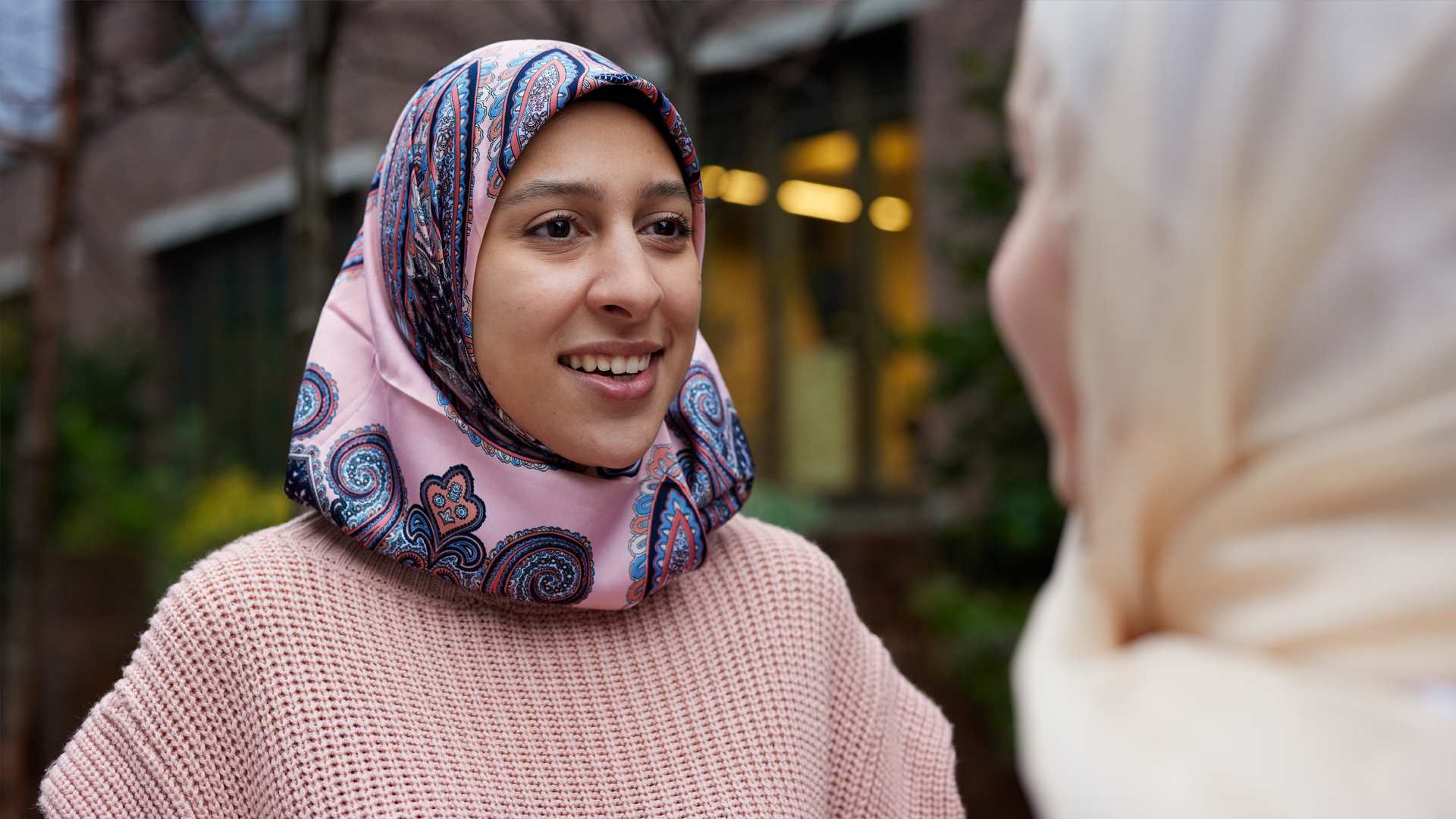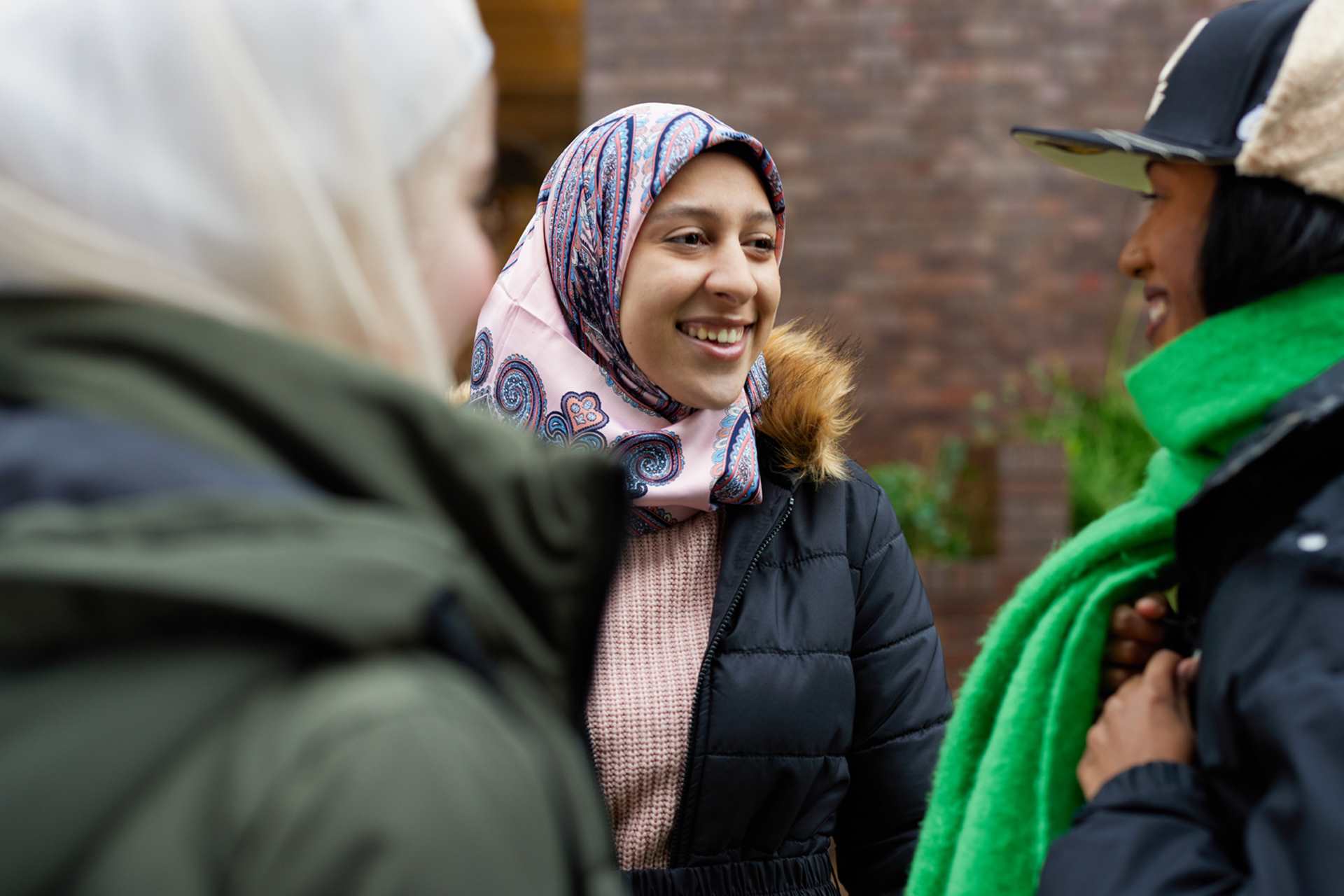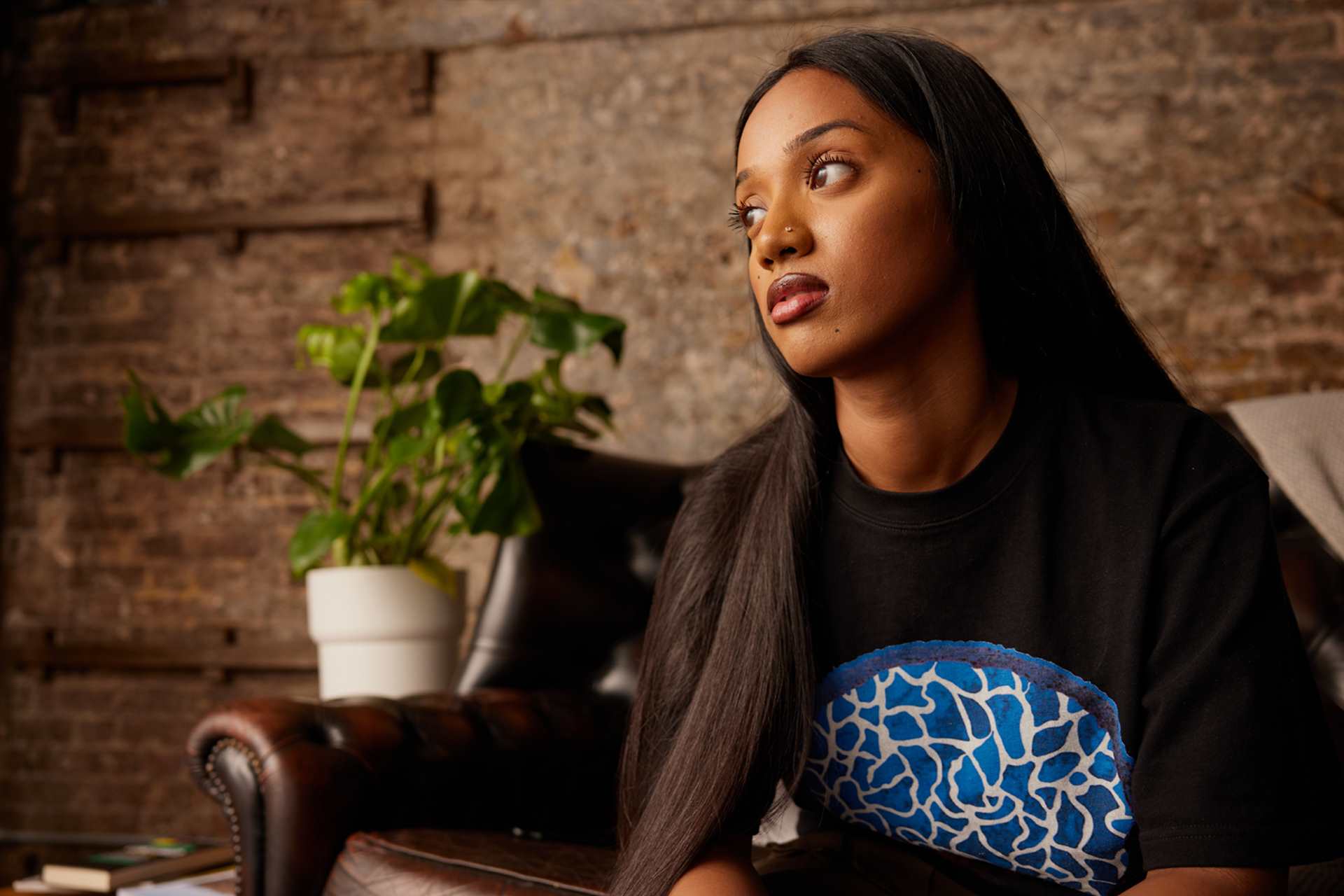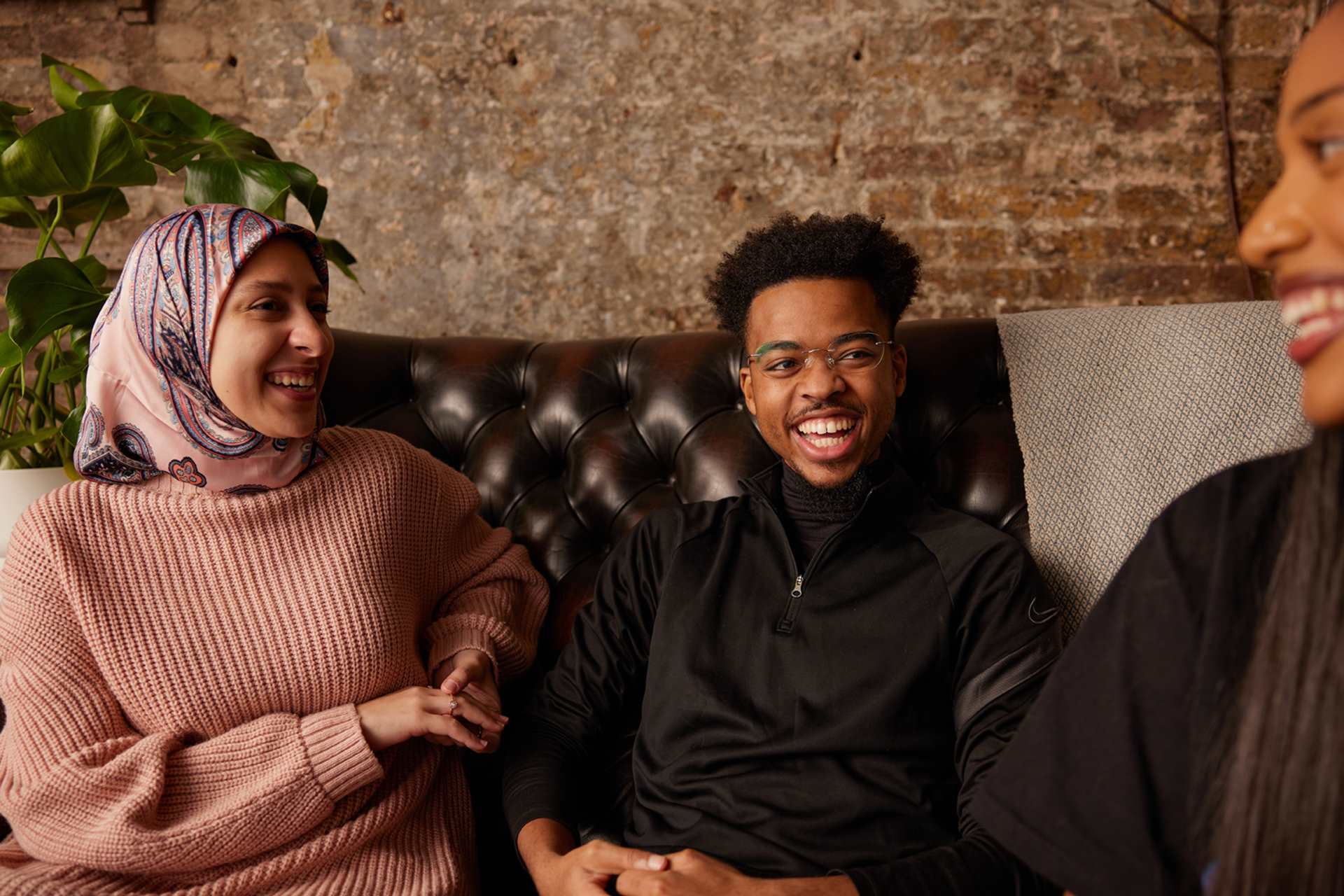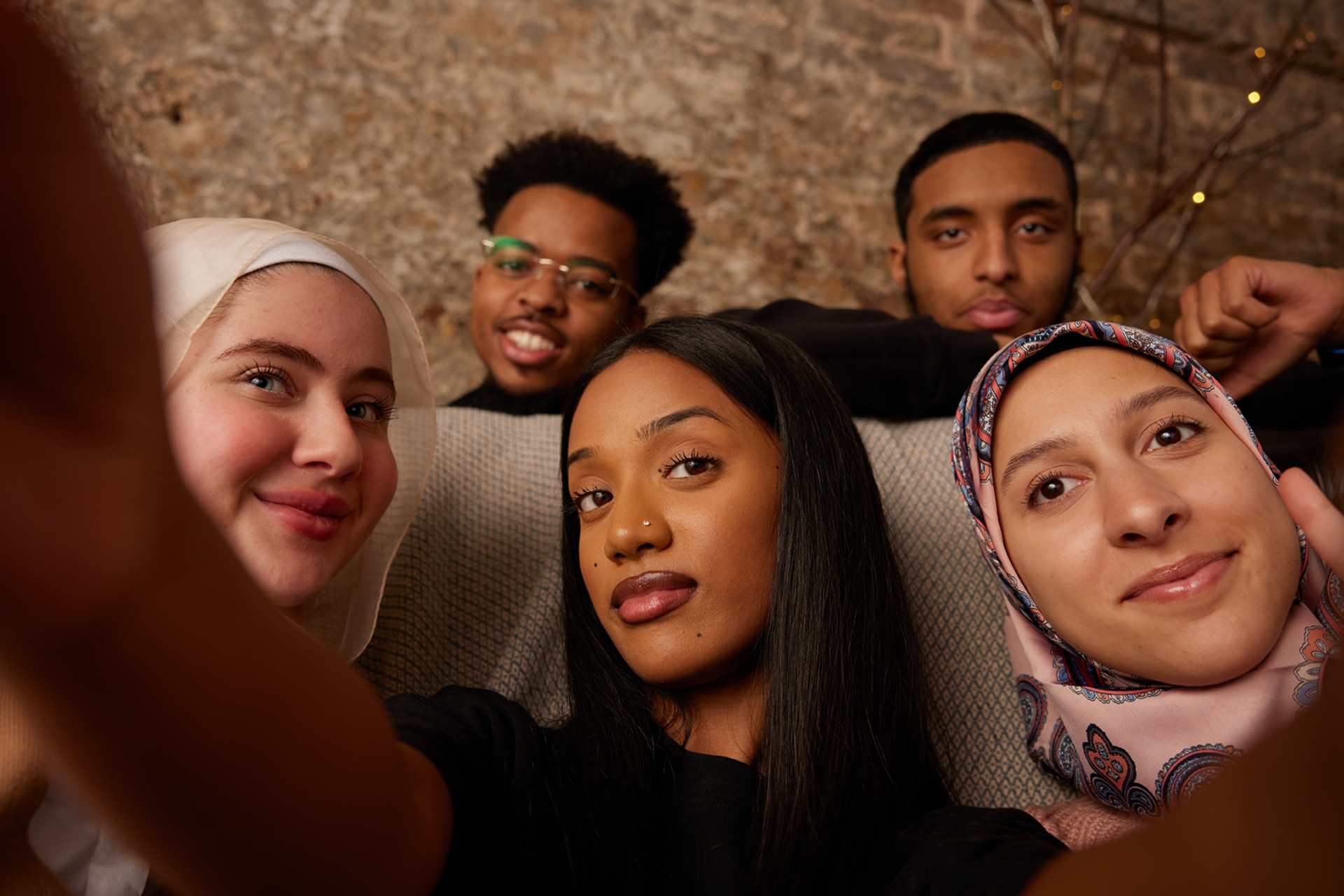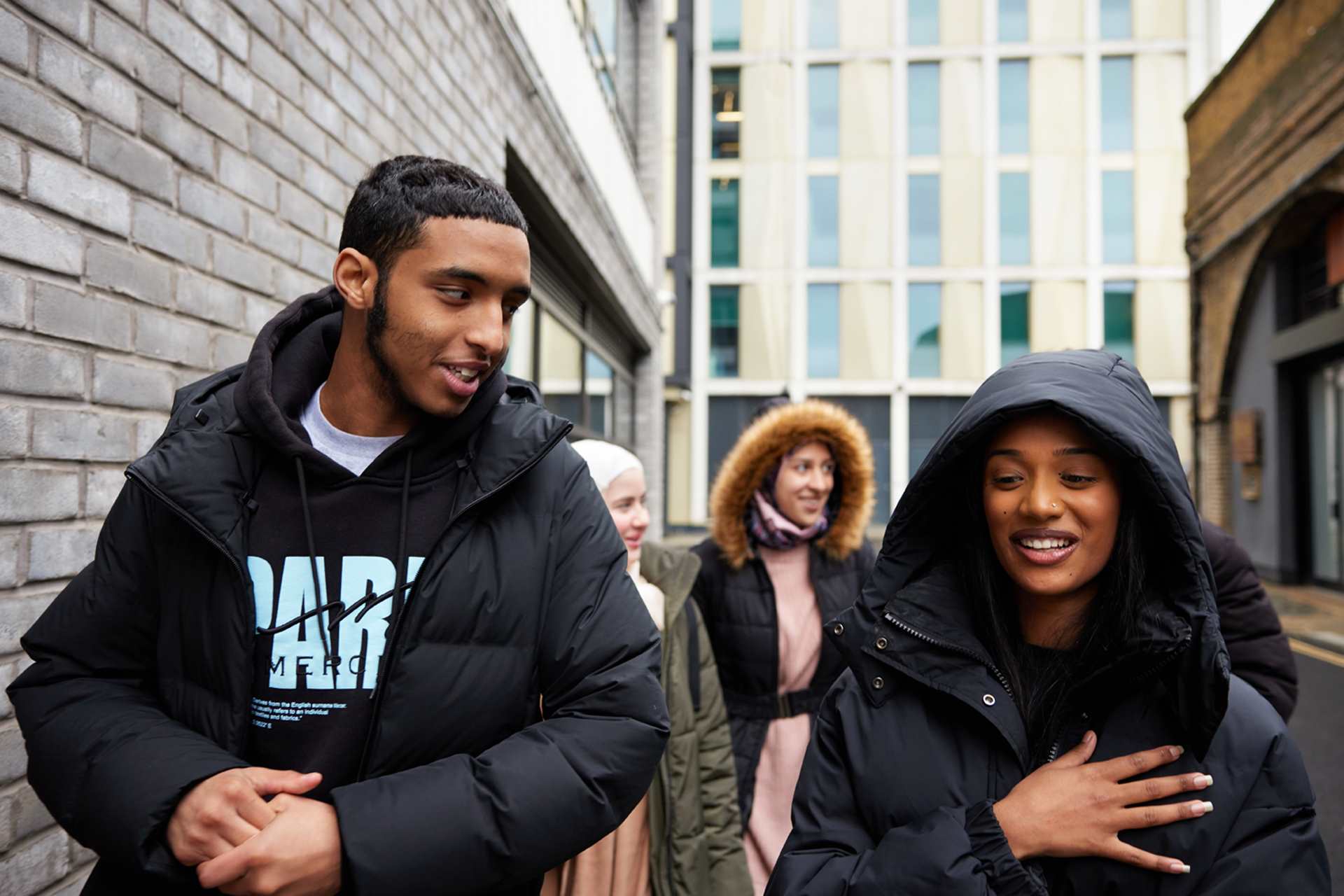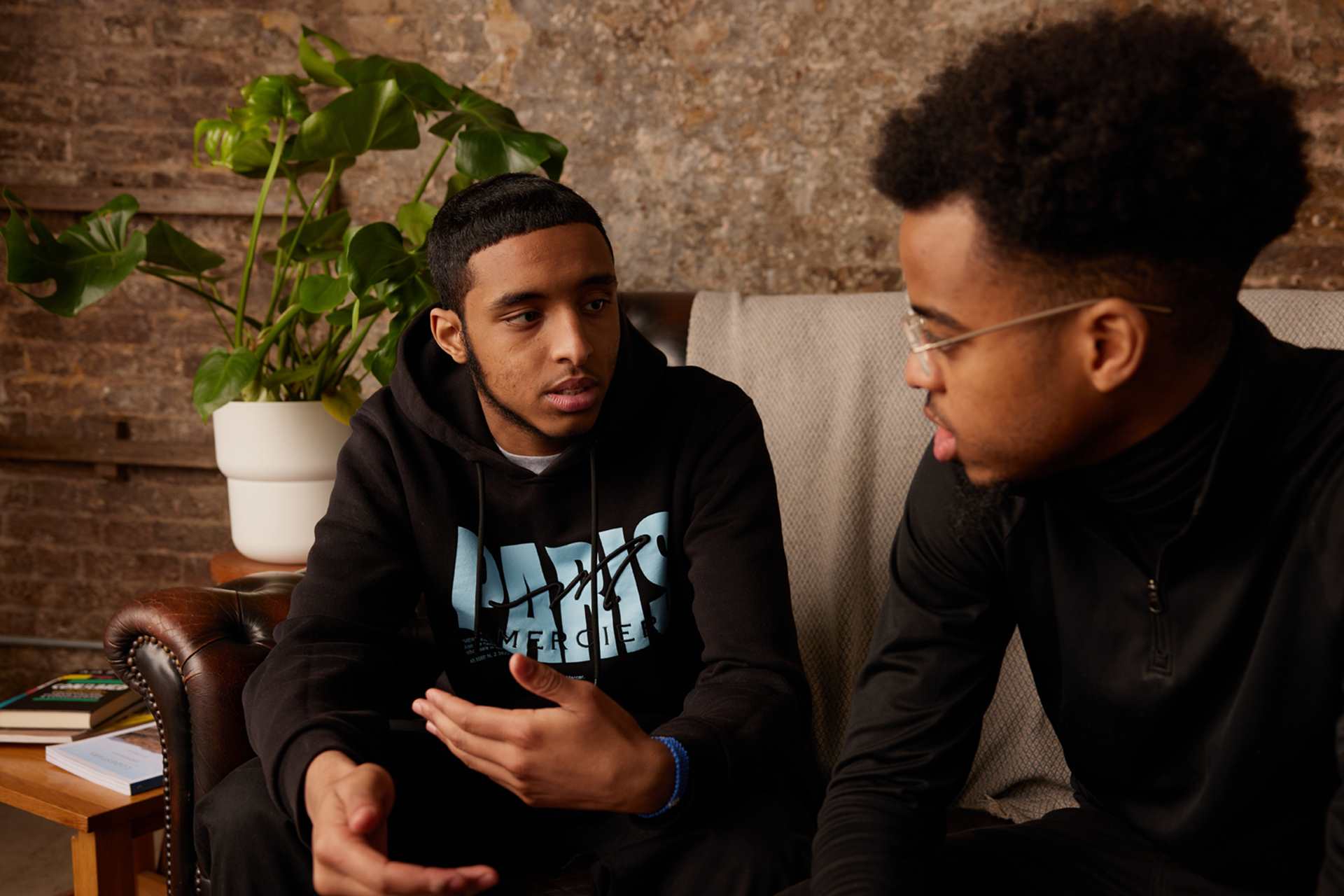Topics mentioned: Islamophobia and mental health
About: Fab reflects on the challenges of growing up Muslim in Britain – from facing racism, fear and stigma around mental health, to finding pride and empowerment in faith and identity.
I’ve titled this piece Growing Up Muslim in Britain Today, but really, it feels more like Growing Up Muslim in Britain for the entirety of my life. The world was a scary place yesterday, last week, last month – and it still is today. But it has been for years.
It’s not been easy growing up in Britain as an Asian, Muslim girl. I may be older now, but I can still remember the torment from a decade ago. I remember being little, feeling carefree, following my religion without many worries about what was happening around me. But things have changed.
It’s not been easy growing up in Britain as an Asian, Muslim girl.
It’s difficult living in a country where I feel like I’m not wanted. It’s hard walking around knowing some people want me gone simply because of my religious beliefs. It’s hard as a teenager, being faced with racist remarks day in and day out. To my face, but also through screens. Reading news articles, seeing posts on social media, marches against Muslims, deaths of innocent people – all because of their faith.
I do feel privileged to live in a diverse city, and I’m grateful for that compared to what my family had to face. They grew up in smaller towns where Muslims were a tiny minority. They faced constant racial remarks, life was uncomfortable and unsafe and they managed as best they could. But even where I live it’s hard. It’s hard to walk into a room and not scan for threats. To be in public spaces and be wary of who is around me. To be on public transport and feel the need to constantly watch my surroundings.
I do feel privileged to live in a diverse city, and I’m grateful for that compared to what my family had to face.
I remember the summer of 2024, when I was terrified to leave my home. I should have been out enjoying summer with friends, doing teenage things, but I was too afraid of being a victim of a hate-crime. That summer, some parts of society decided that all Muslims were bad and needed to be sanctioned for it.
It’s difficult knowing that I might be turned down for opportunities because I don’t have a traditionally-British sounding name. That I may be rejected from jobs because my name sounds Islamic. That being both an ethnic minority and a Muslim lowers my chances of getting help in education or being selected for things like sports teams or extracurricular opportunities.
Mental health can also be a difficult topic in Muslim communities. It’s less about the religion itself, and more about the stigma around it. Often, the first response is that to treat mental illness, you need to turn to God and strengthen your faith. That, as a Muslim girl, you should become more modest – physically and emotionally – to find peace. But those kinds of comments pushed me further from religion. I didn’t like religion being forced on me; it didn’t feel like my choice.
It’s difficult knowing that I might be turned down for opportunities because I don’t have a traditionally British sounding name.
Things slowly improved when I began educating my community. It helped a lot hearing from Muslim influencers and celebrities who shared their own mental health struggles. It made me feel seen. It reminded me that I wasn’t alone. As a child, I thought I was the only Muslim struggling with mental health because of the taboos and the silence in our communities.
But despite all of this – what I’ve called “negatives” – I don’t think there are any negatives in Islam itself. I’m proud to be a Muslim in today’s world, and I’ll never be ashamed of it. I’m proud that Islam is known as a religion of peace. I’m proud that I can explore and navigate my faith in my own way and at my own pace. I’m proud of my identity.
I’m happy to be accepted by my peers without them thinking twice about our religious differences. I’m happy that more people are educating themselves about religious events such as Ramadan and Eid, that they’re willing to learn from me and that they can ask any questions they want. I’m proud that people of other faiths want to get involved in our celebrations and help build a sense of community.
I’m proud to be a Muslim in today’s world, and I’ll never be ashamed of it. I’m proud that Islam is known as a religion of peace.
Looking ahead, there are changes I hope to see in how Muslims are understood and represented. I want to see stronger connections between different religious communities. I want people to stand up for what’s right and speak out when things are wrong. I want Muslim communities to feel empowered to use their voices to bring about change in today’s society. To speak up without the fear of threat or being condemned for it.
Because we deserve to feel safe. We deserve to feel heard. We deserve to belong.
More information and advice
We have tips and advice to help you find the support you need. Take a look at our guides.
Where to get help
However you're feeling, there are people who can help you if you are struggling. Here are some services that can support you.
-
Muslim Youth Helpline
Provides faith and culturally sensitive support for young Muslims.
Online chat service available during opening hours.
- Opening times:
- 4pm - 10pm, 365 days a year
-
Muslim Women's Network
National helpline providing faith and culturally sensitive support and advice for Muslim women.
A webchat service is available on their website.
- Opening times:
- 10am - 4pm, Monday - Friday
-
Samaritans
Whatever you're going through, you can contact the Samaritans for support. N.B. This is a listening service and does not offer advice or intervention.
- Opening times:
- 24/7
